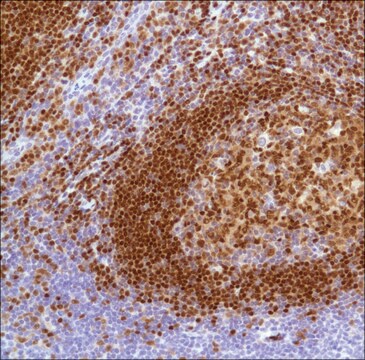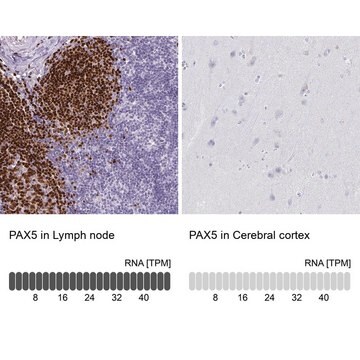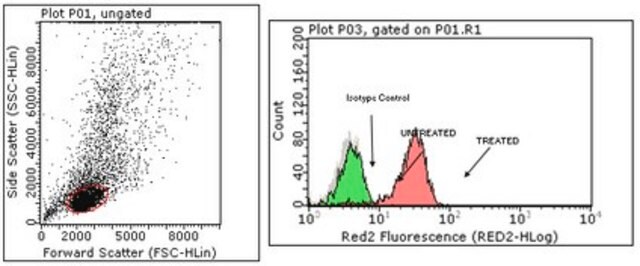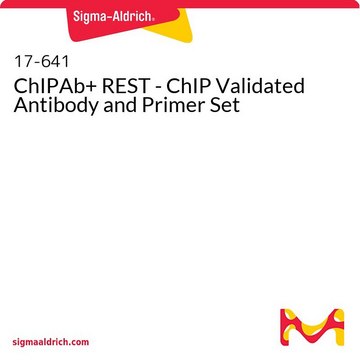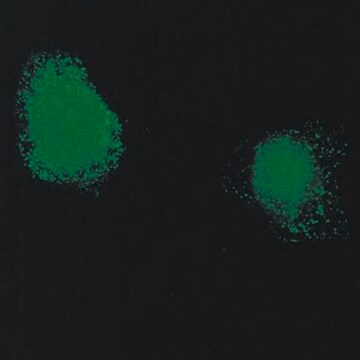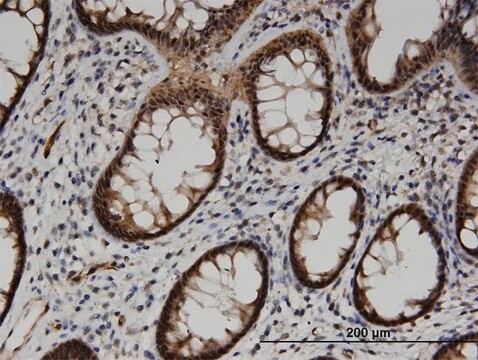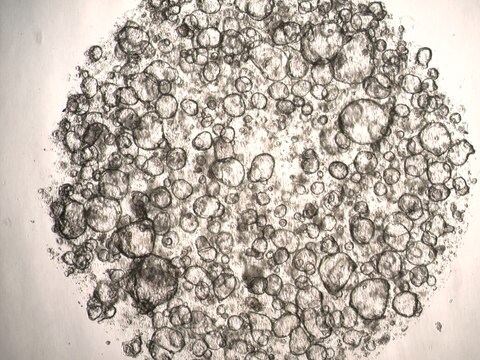312R-2
PAX-5 (EP156) Rabbit Monoclonal Primary Antibody
About This Item
Empfohlene Produkte
Biologische Quelle
rabbit
Qualitätsniveau
100
500
Konjugat
unconjugated
Antikörperform
culture supernatant
Antikörper-Produkttyp
primary antibodies
Klon
EP156, monoclonal
Beschreibung
For In Vitro Diagnostic Use in Select Regions (See Chart)
Form
buffered aqueous solution
Speziesreaktivität
human
Verpackung
vial of 0.1 mL concentrate (312R-24)
vial of 0.5 mL concentrate (312R-25)
bottle of 1.0 mL predilute (312R-27)
vial of 1.0 mL concentrate (312R-26)
bottle of 7.0 mL predilute (312R-28)
Hersteller/Markenname
Cell Marque™
Methode(n)
immunohistochemistry (formalin-fixed, paraffin-embedded sections): 1:50-1:200
Isotyp
IgG
Kontrolle
tonsil
Versandbedingung
wet ice
Lagertemp.
2-8°C
Visualisierung
nuclear
Angaben zum Gen
human ... PAX5(5079)
Allgemeine Beschreibung
Qualität
 IVD |  IVD |  IVD |  RUO |
Verlinkung
Physikalische Form
Angaben zur Herstellung
Sonstige Hinweise
Rechtliche Hinweise
Sie haben nicht das passende Produkt gefunden?
Probieren Sie unser Produkt-Auswahlhilfe. aus.
Lagerklassenschlüssel
12 - Non Combustible Liquids
WGK
WGK 2
Flammpunkt (°F)
Not applicable
Flammpunkt (°C)
Not applicable
Analysenzertifikate (COA)
Suchen Sie nach Analysenzertifikate (COA), indem Sie die Lot-/Chargennummer des Produkts eingeben. Lot- und Chargennummern sind auf dem Produktetikett hinter den Wörtern ‘Lot’ oder ‘Batch’ (Lot oder Charge) zu finden.
Besitzen Sie dieses Produkt bereits?
In der Dokumentenbibliothek finden Sie die Dokumentation zu den Produkten, die Sie kürzlich erworben haben.
Unser Team von Wissenschaftlern verfügt über Erfahrung in allen Forschungsbereichen einschließlich Life Science, Materialwissenschaften, chemischer Synthese, Chromatographie, Analytik und vielen mehr..
Setzen Sie sich mit dem technischen Dienst in Verbindung.